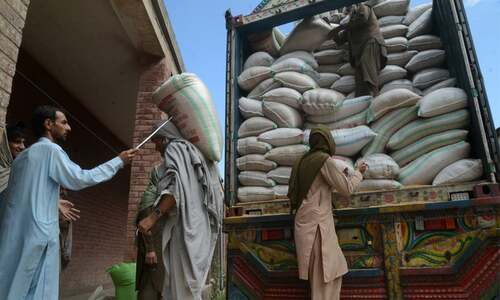ISLAMABAD: Reducing losses and improving the financial viability of State-owned Enterprises (SoEs), a new World Bank report has suggested to the government to reduce or eliminate the longstanding practice of covering SoEs operating losses with transfers from the budget.
With the government’s direct financial support to the 14 largest loss-making SOEs at 0.8 per cent and support to all SoEs reaching 1.4pc of GDP in the fiscal year 2021, the government should subject all SoEs financing requests to a more stringent review process, including submission of independently audited financial statements and credible business plan to reduce losses.
Suggesting actions in the Public Expenditure Review 2023 focusing on ‘Reducing the Fiscal Impact of State-owned Enterprises’, the World Bank says tariff differential subsidy (TDS), that is, the difference between the tariffs that consumers face and the cost recovery tariff, should be revisited. The TDS is not an efficient instrument for reducing poverty as it is poorly targeted with most of the benefits accruing to the richer households. The government should instead consider alternative means of supporting the poor, such as disbursements through the Benazir Income Support Programme (BISP), which is much better targeted.
Other non-electricity subsidies to SoEs for ensuring food security and subsidising essential food items during Ramazan should be proportionate to the unit costs of providing the subsidised goods or services, with legally enforceable quantitative and qualitative indicators in SoEs’ performance contracts. The conditions for the provision of such subsidies should be defined in the subsidiary legislation under the SoE Law.
The enforcement of SoE loan agreements should be strengthened. Outstanding government domestic loans to SoEs stood at 3.5pc of GDP in FY21, of which nearly a third was overdue. Loss-making SoEs may lack the means and intention to repay government loans because there are no available funding streams or no direct consequences for not doing so.
Loan repayment should be added as a key performance indicator for the board of directors. This will achieve the dual objectives of encouraging internal financial discipline and limiting requests for new loans, the report suggests.
Published in Dawn, April 16th, 2023












































Dear visitor, the comments section is undergoing an overhaul and will return soon.